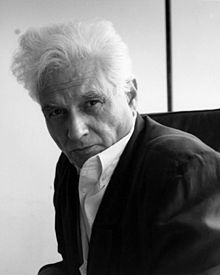I would be hard pressed to find someone who wouldn’t agree that there is something at least a little off with Western thought. I mean, just look at its results. Some people would likely argue either that Western thought is completely irrelevant (as it’s far too chauvinistic and focuses only on old, white men who’ve been dead for at least a century); however I believe more people would argue that the issues came from “outside” or “began because of a degradation of values.” This might be true, but what is it? What is the problem with Western thought that has left its values so open to discrediting?
What is Ontotheology?:
Within Christian philosophy, there is a tendency to speak about God in metaphysical terms. And, as such, there is an equal tendency to speak about metaphysics in religious terms. This tendency is referred to as “ontotheology.” This tendency has been harshly criticized by numerous philosophers, from Kant to Heidegger and now Marion. In a certain sense, this blending of religious and metaphysical terminology has become the standard for Christian thought, but ought it to be this way, or is there something seriously wrong with equating “I AM” with “Is?”
History of the Term:
The term ontotheology was first used by German philosopher Immanuel Kant. Kant uses it to refer to the medieval philosophical/theological tendency to attempt to explain God using the “mere concepts” of ontology. Twentieth century thinker Martin Heidegger, also German, expanded the use of the term to include even Kant’s work.
Kant thought explaining the Almighty in terms of ontological theories (as was the standard of the medieval thinkers) was at best blasphemous, and yet his ethical system was somehow exempt from this critique. Heidegger called Kant’s bluff, exclaiming that no, it was not better to use God as a mere glue to hold together a philosophical system, and that was in fact just more ontotheology, and perhaps worse ontotheology. So what exactly is ontotheology?
Theology and Ontology:
In order to fully understand ontotheology it is necessary to understand the meaning of the two terms that it’s made up of, ontology and theology. Theology is the “science of God” that is, it is the study and thought of the Divine. Ontology is the study of being, not of beings (things around us) but being; what it means to be, or what “is” means. Thus, ontotheology is a muddling of the two fields of thought, pushing God into being and being into God, making it all one science of a God/Being whose being-God is that of a god-of-being that is. In other words, ontotheology makes ontological thought carry the weight of theological consequences, and theological revelation open to the scrutiny of ontological discourse.
But what’s wrong with that?
What’s Wrong With Ontotheology?:
Well, there are two main problems with it, and they relate to the two fields which ontotheology is a muddling of, theology and ontology. In theology, the production of a “God system” or a “system of God” makes sincere connection to revelation (the only way we have come to know God) excruciatingly difficult. Kierkegaard has even further concerns with it, making it clear that he sees ontotheology as a danger, making the “infinite passion” and faith that must accompany religious convictions nearly dead, if not outright impossible. You don’t have faith in a mathematical system. You have certainty. You also don’t write a hymn or offer a sacrifice to a metaphysical principle. (“A Self-caused Cause is Aquinas’ God,”(0:30:30) doesn’t really seem like a winning hymn (might still be better than Marty Haugen though… maybe we should look into it after all…))
More pressing to Heidegger, as opposed to Kierkegaard whose concern was mostly for the spiritual survival of Europe, was the impact this had on ontology. The religious weight ontotheology gives to the mere concepts of metaphysical systems creates a serious concern; anything which overturns it is not to be treated as the academic, philosophical criticism, a new reading of thinkers or thoughts that it is, but it is rather treated as a blasphemy, an offense to the religious sensibility. Thus, it stalls philosophy, and thus pushes philosophy, and in that society, farther and farther away from a religion which it has also robbed of its teeth. God (that is the god of ontotheology) is certainly thus dead, and in this we see the onset of nihilism.
All of this points to a question, can we think of “I AM” as “is”?
Part one of a four part series.











